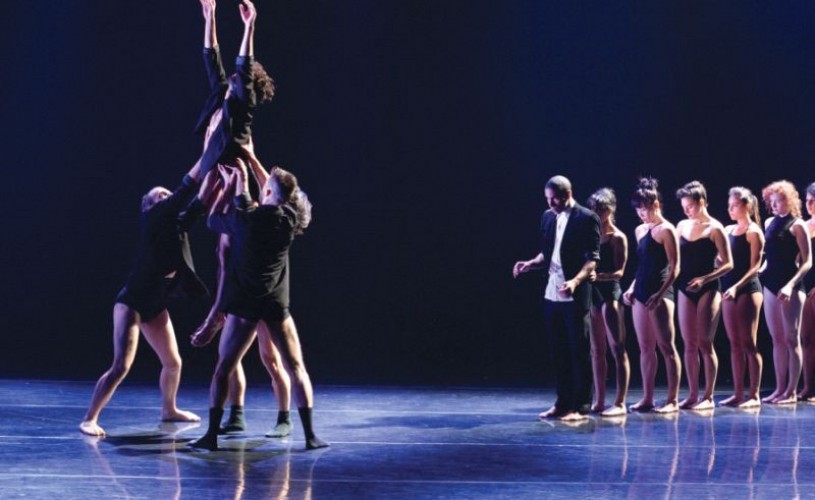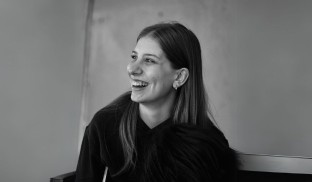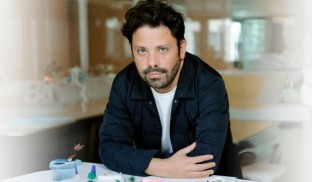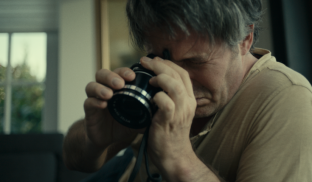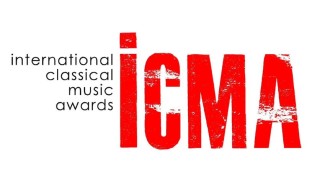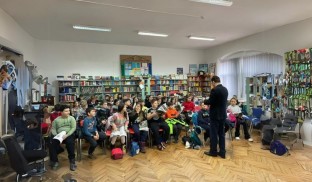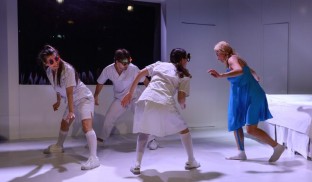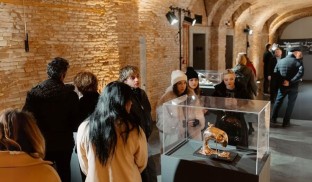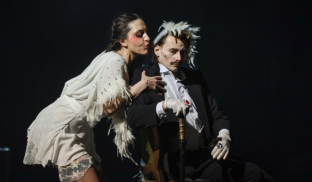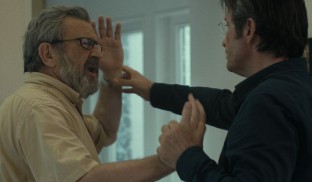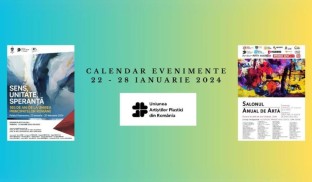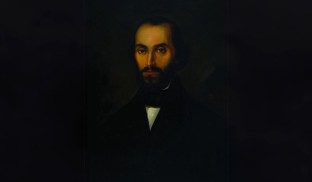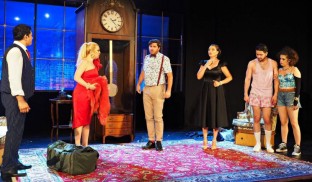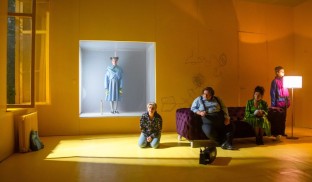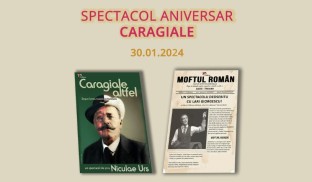Anywhere around the performing arts world, when you say “contemporary dance”, among the names that will absolutely make it to the top of the list are two Israeli dance companies, Batsheva Dance Company (lead by the prominent choreographer Ohad Naharin) and the Kibbutz Contemporary Dance Company (KCDC), whose Artistic Director since 1996 is Rami Be’er. Last year, both companies attended the International Theater Festival in Sibiu. This year, KCDC presented at FITS its newest production, Mother’s Milk. A Love Song for Parents, through which Rami Be’er honors his parents, survivors of the Holocaust, both of which died last year.
Un articol de Cristina Enescu Aky|19 iulie 2018
Be’er’s father, a founding member of the Ga’aton kibbutz (where the choreographer was born, and where his KCDC company has its headquarters nowadays as well) was one of the main architects who structured the kibbutz concept in the mid 1950s, as a homogenous community based on the ideology of equality and cooperation. The style and energy of KCDC reflect this kibbutz-specific community connection. In 2006, Be’er created here the International Dance Village, KCDC’s “creation workshop” and a creative hub where artists live and work together, and where various trainings are organized for professional dancers as well as the general audience, with special events for young people and the Arab community, among others (around the Ga’aton kibbutz there are various Arab communities, alongside which KCDC often develops projects). The choreographer has impregnated this space and the projects created here with an integrative artistic spirit, including movement techniques and props elements, lighting and costumes, and a lot of opportunities for inspiration and interaction for artists.
Mother’s Milk is a reverential show that speaks (in the same powerful, overwhelmingly magnetic, KCDC specific language) about memories, relationships, human connection and profoundly intimate moments, struggles, searches, defeats and victories of an actually universal life, beyond the space and time of Be’er’s biography. The creativity, technique and seismic energy of this work reconfirm the strong quality status of this company among all contemporary dance companies of the world, but at the same time it also highlights Be’er’s philosophy: “When a dancer is honest, their impact on the one observing them will be huge.”
On a dimly lit stage, seemingly illuminated just by an elegant chandelier and, at times, by a light moved around among the dancers, powerful emotions and struggles rise from music and sounds with deep resonances (heart beats, whispers, percussion beats, poems reciting). Fine touches of humour and drama, flowing movements and thrilling, explosive dynamics – all wrapped in the intricate lace of light and shadow, designed in a very simple yet compelling way by Be’er. The duo and trio moments – one of the strong points of the Israeli creator’s choreographies – blend beautifully with solo and group dances, all having a certain finesse of the details and an expressive strength in common. The group compositions are often exceptional in the way they combine deep, dark emotions with superbe lyrical moments, so beautiful that one can but connect instantaneously.
Thename of the show, Mother’s Milk, evokes visceral, intimate sensations, with powerful resonances. This work, alongside the 19 dancers that bring it to life (many of which come from very different cultures – Israel, Italy, America, Korea, France, Spain, Russia), makes a statement and proves that the most intimate and personal emotions are in fact universal, and also proclaim Man’s highest power: his capacity to connect with others through ephemeral things (body, movement) and eternal ones just as well (love, emotions).
Dance cannot solve problems, says Be’er, but it can surely raise questions. And, certainly, dance can wake up entire galaxies of emotions, experiences and connections through something that only dance can show> the intrinsic unity of spirit and body.
Right after FITS, KCDC left to Paris for 6 performances at the famous Theatre de Paris, which thus accommodates for the first time a dance company.
Watch the trailer of Mother’s Milk
Foto: Mother’s Milk (Kibbutz Contemporary Dance Company)

